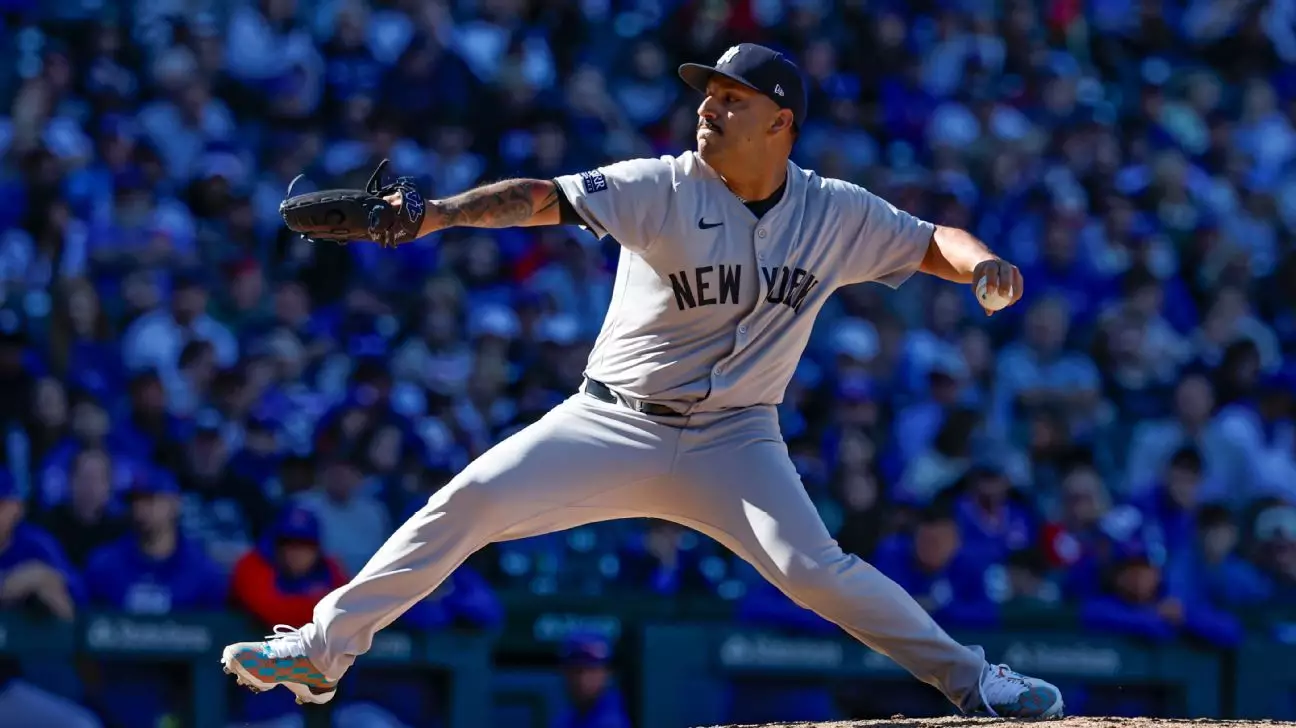In the dynamic world of Major League Baseball, roles can shift unexpectedly, leading to a mix of emotions for athletes deeply invested in their team’s success. Nestor Cortes, a left-handed pitcher for the New York Yankees, is grappling with such a change after being reassigned from the starting rotation to a relief role. This change, particularly surprising for Cortes, is a reflection of the fluid nature of professional sports, where performance and strategy continually intertwine.
Cortes’ candid admission that he felt “upset” about his new position is significant. It highlights the passion and dedication that athletes maintain towards their careers. He described himself as the “workhorse” of the rotation, which brings to light how pivotal he felt his contributions were to the team. Notably, he was tasked with the honor of being the Yankees’ Opening Day starter this season while ace Gerrit Cole was on the sidelines due to an elbow injury. This level of responsibility undoubtedly influenced his expectations moving forward. When a player who has consistently started finds himself in a relief role, it can evoke feelings of disappointment or confusion, especially when the transition feels unmerited.
Despite this emotional turmoil, Cortes proved his resilience during his recent outing against the Chicago Cubs. He delivered an impressive 4⅓ innings of no-hit relief, showcasing his ability to adapt to any situation. His performance contributed significantly to the Yankees’ 2-0 victory, which speaks volumes about his character and professionalism under difficult circumstances.
Yet, it raises important questions: How does a transition from starter to reliever affect a pitcher’s mindset and preparation? Although Cortes accomplished this task with grace, the underlying implications of such a shift are complex. Pitchers tend to develop routines tailored to their roles, and abrupt changes can disrupt these patterns, which may play a role in subsequent performances. Cortes’s prior struggles—he allowed five runs in his last start against the St. Louis Cardinals—serve as a reminder of how fragile a player’s status can be given the competitive landscape.
Looking ahead, uncertainty looms over Cortes’s future role within the Yankees’ rotation, particularly as other pitchers like Clarke Schmidt and Luis Gil return from injury. Cortes himself expressed uncertainty, noting, “I have no idea… this one caught me by surprise.” This sentiment cuts to the heart of the pressures faced by professional athletes: their status often hinges on a delicate balance of performance and strategic decisions made by the management.
Yankees manager Aaron Boone acknowledged Cortes’s professionalism in adapting to his new role, praising him for excelling in unexpected circumstances. Yet, this tacit acknowledgment also reflects a broader issue within sports management. While the decision to move Cortes into relief might have been tactical, it also highlights a potential lack of communication or foresight regarding player roles.
In a broader context, Cortes’s situation exemplifies the challenges faced by many athletes in team sports. Each player’s journey is characterized by resilience, adaptability, and an unwavering commitment to their team. As much as team dynamics and strategies evolve, maintaining open lines of communication can lead to better outcomes for all involved. Cortes has proven that he is willing to accept challenges and deliver his best effort no matter the role assigned.
While Nestor Cortes finds himself at a crossroads, both his recent performance and his attitude suggest that he possesses the mental fortitude to navigate this unpredictable terrain. Professional athletes often have to recalibrate their identities amid such shifts, and how Cortes approaches this transition will significantly impact both his career trajectory and the Yankees’ prospects in the coming games. Ultimately, sports are not merely about winning but about teamwork, character, and the spirit of perseverance through challenges and changes.


Leave a Reply